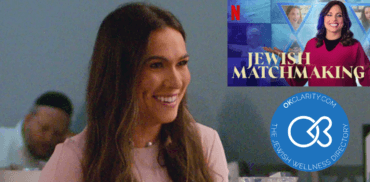#UsToo: How We Can Partner With Hollywood to Change the Status Quo
For a decade of my life, I lived the Hollywood dream…a dream from which many have woken up in the aftermath of the Harvey Weinstein scandal. As an intern, assistant and junior executive, I worked alongside some of the biggest names on both sides of the camera. But when I saw what was happening behind-the-scenes, I threw in the towel. Why? Because there were Harvey Weinsteins everywhere. If you wanted to make it in Hollywood, you had to put up with all of those who abused their power. I, alongside many women I knew, frequently experienced harassment, belittling, gaslighting, and unwanted advances. We were expected to keep quiet about it if we wanted to keep advancing in the Entertainment game. These interactions weren’t just reserved for actresses; it was a pervasive part of the culture that also affected those behind-the-scenes.
Film producer Lynda Obst’s seminal 1996 memoir Hello He Lied was an incredible inspiration to me. It also served as a warning that there would be every form of manipulation between me and my goal. Success could be difficult without the path that some chose to take: using the aid of nepotism, a private bankroll, or doing the wrong things with the “right people.” The final of these paths to glory was less about the ambition of the one trying to climb the ladder than those on the higher rungs, trying to brandish their power.
From the big-timers in the boardroom to the small-timers in the mailroom, agents, producers and everyone in between – the lines between professional and personal too often blurred. Assistants were encouraged to act like spouses, whether in being made to go personal shopping for or build the egos of their bosses. In the process, many Hollywood marriages were devalued and ended painfully. (An indicator of the climate is that the divorce rate in Los Angeles is currently around 70%, the highest in the U.S.)
While some of Hollywood’s most outspoken feminists are coming forward and “outraged,” many are taking time between projects in which they are willingly objectified and hyper-sexualized. Some consumers are floored by the allegations against Harvey, but wouldn’t have missed seeing the new graphic “Female James Bond” movie or stopped binge-watching Game of Thrones. No one deserves to be harassed or assaulted, but the hypocrisy is obvious. Hollywood insiders used to often joke about the Porn industry. If talent wasn’t on the “A-list” nor the B, C, D or E-Lists, they took jobs on the other side of Mulholland Drive. It was looked down upon, but what were the differences really? People would snigger about where projects fell on the Showgirls scale of crudeness, but over the years, industry standards lowered significantly, to the point where such similarities to pornography are rarely a detriment. Just seeing the difference in what Network censors allow now vs. ten years ago is a testament to this fact.
It’s not news that sexual harassment is pervasive in Hollywood. The fact that it is also de rigeur in many other industries has many commentators wondering: are we really still so backwards in nearly 2018 that women, who most western cultures hold to be equal to men, are still so mistreated across the board? The scandals that broke out recently, from Bill O’Reilly, to LA Reid, to “America’s Dad” Bill Cosby show that no industry is immune, although Hollywood sees far more. The reason for this is simple: although the world still objectifies women, nowhere is it more acute than in the industry which directly profits from it.
Sexual harassment is not just about those that are outwardly aggressive, but those who passively allow demeaning billboards to grace Sunset Strip and Times Square, by giving business to the companies who shill underdressed (and underage) women and watch the Victoria’s Secret fashion show on TV. The more content that is created and consumed that includes gratuitous sex, misogyny, nudity and laissez fair attitudes towards sexuality, the more the Harvey Weinsteins flourish in every part of the world. None of us have to be victims or blame them.
Since exiting the industry, I have made more selective choices in the material I watch and promote. When both those who have the power to greenlight in Hollywood, and consumers alike choose content that takes a more guarded approach to sexuality, we will begin to take the power back.
If you found this content meaningful and want to help further our mission through our Keter, Makom, and Tikun branches, please consider becoming a Change Maker today.








2 comments
Sort by
I think you’re completely missing the point. There’s a difference between nudity and exploitative nudity; women taking control of their own sexualities onscreen isn’t necessarily exploitative. The solution isn’t to “choose content that takes a more guarded approach to sexuality”, it’s to choose content involving sexuality that still treats its women as fully formed people, rather than objects of the male gaze. Nudity isn’t a problem, and IMO, leaving behind the ultra-covered-up modest culture is a good thing (obviously if someone *wants* to dress modestly, that’s totally fine, but not having another option is restrictive and repressive). Also, take a look at this phrase: “gratuitous sex, misogyny, nudity and laissez faire attitudes towards sexuality”. One of those things is not like the other. Gratuitous sex? Not a problem, as long as there’s no objectification and nothing nonconsensual. Nudity? Also not a problem – seeing more non-sexualized nudity is something that I think is incredibly important, because a major problem in our culture is seeing womens’ bodies as inherently sexual (they aren’t). Laissez faire attitudes towards sexuality? Great! As far as I understand the term, it means “do whatever you want with a consenting adult”. That “laissez faire” attitude is healthy and got us gay marriage. Misogyny? A terrible, terrible problem.
TL;DR We don’t need to choose and create less sexualized content. We need to choose and create content involving healthier sexual relationships.
Thanks for your comment, JustSomeLady, but I think there is a challenge in your proposal – how do we know who’s being exploited on screen? Salma Hayek just wrote about how she was coerced into doing a sex scene in a movie by Harvey Weinstein. She was so sick the day of filming (due to nerves and the desire to not film the scene) she had to take valium to get through it. And she’s an accomplished actress. What about the scene from “Last Tango in Paris” where decades later we discover the actress was being raped on camera? And what about all the “lowly” actresses trying to build up their careers, ending up in compromising positions in a hope to get ahead? I don’t think we the viewer have enough insight into the dynamics between the actress and the director or even the back story of the actress. Perhaps in some cases the actresses were molested and have come to see their “use” in life as being on display and performing sexual acts for others’ enjoyment. Many kids who are molested end up being used and abused throughout life. I’m not claiming that every nude scene or sex scene is a result of these things, but certainly some of them are. Which makes the viewer complicit and even part of the exploitation. Abuse is rampant in Hollywood – more than other industries and I dont think it’s a coincidence.